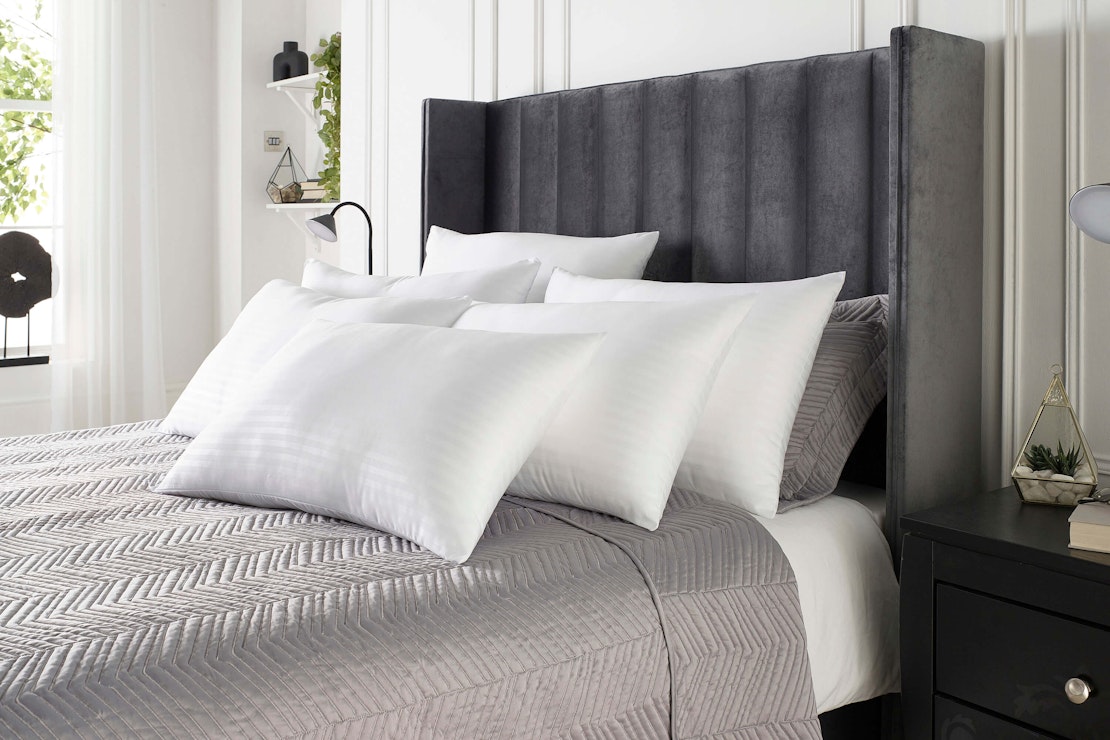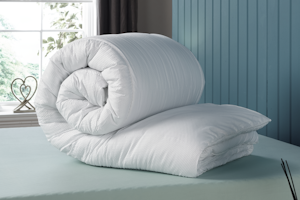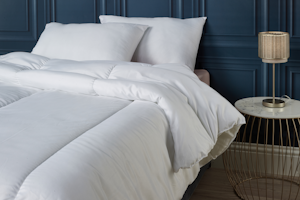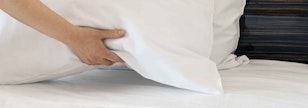20 Mar 2025

Natural Vs. Synthetic Bedding
12 Feb 2022
When was the last time you purchased new bedding? Experts recommend that pillows should be changed once every 18-24 months whilst duvets should be replaced every 5 years. Despite these suggestions, the average Brit keeps these items for 3.2 years and 7.6 years, respectively. That could lead to the presence of millions of dust mites.
For some the decision on new bedding is an easy one as allergies simply rule out all natural filled products. Though there is not one synthetic filling to choose from! For others the possibilities seems endless and we simply want to know what the differences are and what will work best for us.
Natural
Many people who use natural filled bedding swear by them and could not imagine gaining a better night’s sleep from any synthetic product. We all love the feeling of being snug in bed on a cold winter’s night, and feather duvets keep you so warm by settling over you and filling any gaps. Down which is often in more premium products is able to keep you warmer than any synthetic option on the market! Goose feather and down are the most luxurious due to their larger size and ability to trap more air whilst remaining lightweight. Another of the qualities of feather and down products is the fact it is a breathable material, this helps to wick moisture off your body as you sleep and give you are more comfortable, and less sweaty, nights sleep. These products with the right care and treatment can last a lifetime!
Synthetic
Many people opt for synthetic products due to their allergies, thought you are not confined only to natural products if you do not suffer from allergies. Dust mites are less attracted to synthetic problems and it is often the dust mites that cause people to react badly to naturally filled products. Synthetic products are far easier to care for, you can easily place them into your washing machine without running into the problems associated with cleaning natural products, washing at 60° or higher will kill off dust mites. Many synthetic products will offer properties that will reduce your chances of an allergic reaction: Non-allergenic means that the item itself shouldn’t cause an allergic reaction, but triggers such as dust mites may still be present. Hypoallergenic means that there is a decreased chance of allergic reaction. Anti-allergy means the item is intended to prevent or minimize an allergic reaction.
Price is another serious factor when purchasing new bedding, you can get a high quality synthetic duvet for far cheaper than a reciprocal naturally filled one.
Hollowfibre
Hollowfibre gets its name due to the fact that it’s made from fibres which have space between their knotting. The ‘hollow’ space between the fibres helps to ensure that the duvet is breathable and also means it’s a higher quality product than many other comparable duvets filled with alternative synthetic fillings.
Microfibre
Microfibre duvets have very fine fibres which are tightly woven and without the hollow space. Microfibre duvets offer the ultimate warmth due to their tightly packed fibres. Microfibre is the lightest and finest synthetic fibre available as a duvet filling and offers you that extra soft and extremely cosy feeling. If you’ve always had a natural-filled duvet but fancy a change, your best bet is to go for a Microfibre one.
This whole debate is not one where we can draw a definitive answer, it is down to personal preference. You can browse our range and pick for yourself!


